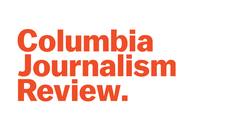Relevant Overviews
- Communication Strategy
- Content Strategy
- Fediverse
- Online Strategy
- Online Community Management
- Social Media Strategy
- Content Creation & Marketing
- Digital Transformation
- Personal Productivity
- Innovation Strategy
- Communications Tactics
- Psychology
- Social Web
- Media
- Politics
- Communications Strategy
- Science&Technology
- Business
Hoaxy will allow researchers, journalists, and the general public to study the factors that affect the success and mitigation of massive digital misinformation.

my research team’s analysis of data from Columbia University’s Emergent rumor tracker suggests that this misinformation is just as likely to go viral as reliable information... limiting news fakers’ ability to sell ads... a step in the right direction. But it will not curb abuses driven by political motives... Using BotOrNot, our colleagues found…

these efforts seek to produce a divided electorate and a president with no clear mandate to govern. The ultimate objective is to diminish and tarnish American democracy... We’ve monitored more than 7,000 social media accounts over the last 30 months and at times engaged directly with them. Trump isn’t the end of Russia’s social media and hacking …

the evidence of this orchestrated Russian intelligence effort to hack the outcome of the American election... seems flimsy at best... saying is that Russia took advantage of the social web’s desire to just share things without reading them. It may be true, but so does every other media outlet.
Zuckerberg’s emerging dilemma. He doesn’t want Facebook ... to be an arbiter of what’s legit and what’s not. But if Facebook is now going to prohibit fake news sites from using its ad network to sell ads, it will need a list of its own... Google has long had its own list of legitimate news sources... hasn’t apparently wanted to cut into its own…

Perfectly open communities always go sour. You need filters. Every functional community has them. And that’s where machine learning comes in... If you can detect trolls, you can protect the people they’re trolling by muting or putting a warning over the trolls’ posts... Twitter... already have a way of screening out porn. Why don’t they do the sam…

Seven years ago I started working full time at the Guardian in the glamorous role of SEO editorial executive. ... very like being in the Matrix but with less kung fu and more Polly Toynbee and Nigel Farage... here are a few of the things I’ve learned…

a lot of people don’t know fake news when they see it, sensationalized reports are more likely to go viral on social media than sane ones, and distrust of traditional (and genuinely more reliable) media sources is rising. Professor Nicole A. Cooke ... focusing on human information behavior, information literacy, and diversity in librarianship.... …
There’s bad information out there that’s not necessarily fake. It’s never as clear-cut as you think... Facebook’s algorithm may not understand the various shades of falsehood. Facebook could tweak its algorithm to promote related articles from sites like FactCheck.org so they show up next to questionable stories on the same topic in the news fee…

Preteens and teens ...often clueless about evaluating the accuracy and trustworthiness of what they find... 82% of middle-schoolers couldn’t distinguish between an ad labeled “sponsored content” and a real news story... according to a Stanford University study of 7,804 students

Legacy media is thriving in Scandinavian news feeds... public broadcasters in all four countries seem to be competing strongly on Facebook... what do Scandinavian legacy publishers have to their advantage...?... many Scandinavian publishers see platforms such as Google and Facebook as only one part of their audience development strategy... small…

the groundbreaking work on “post-truth” was performed by academics, with further contributions from... middle-class professionals... Instead of “the truth”, which was to be rejected as naïve and/or repressive, a new intellectual orthodoxy permitted only “truths” – always plural, frequently personalised, inevitably relativised... all claims on trut…

As Facebook attempted to capture the fast-moving energy of the news cycle from Twitter... it built a petri dish for confirmation bias... Here’s how... ‘Share’ Button ... encouraging people to share quickly and without much thought... “original sharing,” where people post their own photos, text updates... was declining..., content from celebritie…

“So all the fact-checking of Trump’s lies, all the investigative journalism about his failures, even the tapes — none of it meant anything.” In short, what happened to news ...? determining what counts as journalism and who counts as a journalist is a perpetual struggle ... No single trend explains the dissolution of news... What we ended up with…

Facebook seems incapable of rooting out hoaxes even after acknowledging they are clearly fake news... at least five different pages shared a story after Facebook acknowledged it was fake and were still able to reach tens of thousands of people through the social network. None of the posts carry any warning that the content is fake... BuzzFeed anal…

Raising Barriers... took readers to eight countries across three continents and examined the divisions between countries and peoples through interwoven words, video and sound... we used every multimedia tool in our arsenal. Here’s what we learned from the experience

we’ve seen a steady increase in the number of journalists experimenting with immersive storytelling to tell important stories in new ways... Journalism 360, an initiative to build a network of journalists willing to tackle those challenges and share what they’re learning. With this effort, we’re looking to support experiments, provide training wor…

Decline of text in favour of videos means more Trumps and Berlusconis around the world... the internet which was the last word-centred public space after the decline of print journalism, is capitulating to the television format... public opinion in the age of television is more a set of “emotions rather than opinions, which would account for the …

people comment 10 times more on Facebook Live videos than on regular videos... we wanted to highlight some of the recent trends and themes we’ve seen emerge... Local reporters often have devoted fans who are interested in viewing their authentic Facebook Live content. Certain news content resonates...

With its reliance on polling data over source cultivation and number crunching over narrative, FiveThirtyEight... is at the forefront of a shift in the way political journalism is practiced.... being an outsider, maybe you’re able to call B.S. a little easier. That’s a helpful role to have.... the site attracted nearly 10 million unique visitors …
“So far, the growth around online video news seems to be largely driven by technology, platforms, and publishers rather than by strong consumer demand,”
over 30 news organizations ... and tech companies such as Facebook, Twitter, and YouTube to share best practices on how to verify true news stories and stop the spread of fake ones.

with newsrooms reeling... a weakening of the stable platforms threatens to cause general informational impoverishment, a degradation of the entire information ecosystem. Adding to the worry, people today are exposed to news ... through a single platform—mainly social networks, which tend toward a clustering of like-minded individuals. Together,…
I find value in reader comments that can’t be adequately reproduced elsewhere. The argument that the conversation has migrated to Facebook and Twitter is flawed. ... they are no substitute for having discussion take place where the story itself lives. ... News organizations should fix online comments rather than ditch them... the feedback is... f…

BBC Business Unit has been experimenting with 'news you can use', a concept which mimics tutorials and informational videos popular with YouTube viewers, in a bid to engage a wider audience on social media... Using just his mobile phone, Shaw is able to shoot videos quickly and easily, wherever he can grab the interviewees.

repeating a lie, which is generally part of the debunking process, can reinforce it. ... confirmation bias leads people who want to believe something to believe it even more after they’ve been shown they’re wrong.

We’re serious journalists who understand audiences and analytics. But we see a plethora of story ideas — and people — in all of that data.

Instead of pushing news, it’s going to gather news. ... It’s not only going to tell you funny, interesting, and insightful stuff. (Although it will.) It’s also going to ask questions... depending on whether you’re a conventiongoer, a protester, or watching along at home. And it will use those reactions and inbound information to inform BuzzFeed Ne…
Relevant Overviews
- Communication Strategy
- Content Strategy
- Fediverse
- Online Strategy
- Online Community Management
- Social Media Strategy
- Content Creation & Marketing
- Digital Transformation
- Personal Productivity
- Innovation Strategy
- Communications Tactics
- Psychology
- Social Web
- Media
- Politics
- Communications Strategy
- Science&Technology
- Business

